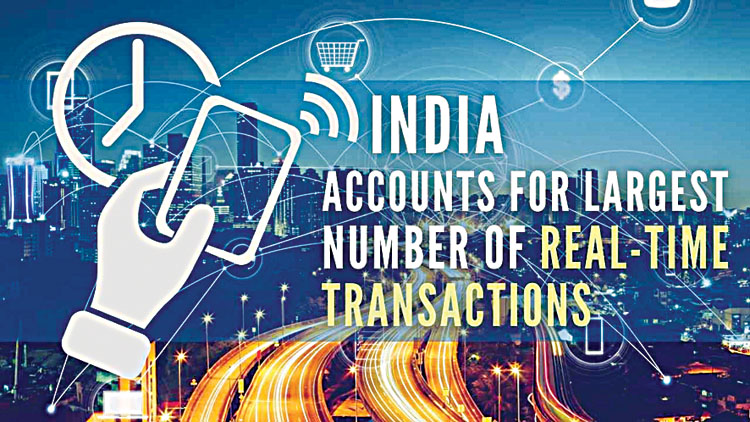India has extended its global leadership in real-time payments, hitting a staggering 48.6 billion transactions in 2021, which helped unlock $US16.4 billion of additional economic output, equivalent to 0.56% of formal GDP, according to the third edition of Prime-Time for Real Time 2022, published by ACI Worldwide, (NASDAQ: ACIW), in partnership with GlobalData, a leading data and analytics company, and the Centre for Economics and Business Research (Cebr). The report – tracking real-time payments volumes and growth across 53 countries – includes an economic impact study for the first time, providing a comprehensive view of the economic benefits of real-time payments for consumers, businesses, and the broader economy across 30 countries. The report covers all G20 nations, excluding Russia. The research shows that governments that advance the real-time modernization of their national payments infrastructure create a win-win situation for all stakeholders in the payments ecosystem: consumers and businesses benefit from fast, frictionless and hyper-connected payments services, financial institutions future-proof their business in a highly competitive environment by speeding up cloud-first and data-centric modernization, and national governments boost economic growth, reduce the size of their shadow economy and create a fairer financial system for all.
India Highlights:
India accounted for the largest number of real-time transactions in 2021 (48.6 billion) – almost threefold that of the closest challenger China (18 billion transactions in 2021) and almost seven times greater than the combined real-time payments volume of the world’s leading economies – U.S., Canada, U.K., France and Germany (7.5 billion). The widespread adoption of real-time payments resulted in estimated cost savings of $US12.6 billion for Indian businesses and consumers in 2021, which helped to unlock $US16.4 billion of economic output which represents 0.56% of the country’s GDP. The growing acceptance of UPI-based mobile payment apps and QR code payments among merchants, combined with the increased use of digital payments during the COVID-19 pandemic, helped real-time payments secure 31.3% of total payments transaction volume in 2021. With consumers increasingly shifting from cash to mobile-based real-time payments, skipping payment cards, the real-time payments’ share of the total payments volume will rise to over 70% in 2026 – with net savings for businesses and consumers forecast to rise to $US92.4 billion in 2026, helping generate an additional $US45.9 billion of economic output, equivalent to 1.12% of the country’s forecasted GDP.
“India is the poster child for real-time payments and a shining example of how a coordinated, collective, nationwide effort can unlock huge economic and social potential,” said Ankur Saxena, Head of South Asia, ACI Worldwide. “India’s craving for cash may be plummeting, but there is still a great deal more to do. It is time to accelerate our efforts and expand this impact beyond the top tier metropolitan areas and replicate our success for the benefit of the entire country.” “Real-time transactions and growth forecasts continue to rise globally, with emerging countries like India leading the way and outpacing developed nations. Governments around the globe that enable real-time schemes are driving economic growth and prosperity, by providing consumers and businesses with cheaper, faster and more efficient payment methods,” said Jeremy Wilmot, chief product officer, ACI Worldwide.
Wilmot added: “One of the big themes in this year’s report is the cloud as the great enabler of real-time success and new, differentiated payments experiences. Within the financial services industry, we are still only scratching the surface of the cloud’s potential. As other industries have already shown, and as this report confirms, it is increasingly clear that banks and financial institutions with designs on winning with payments in the real-time digital economy need to be cloud-first and data-centric.” “By allowing for the transfer of money between parties within seconds rather than days, real-time payments improve overall market efficiencies in the economy,” commented Owen Good, Head of Advisory, Centre for Economic and Business Research. “Real-time payments improve liquidity in the financial system and therefore function as a catalyst for economic growth. This is especially important for our fast-paced and digital-led gig economies. Workers are paid quickly, allowing them to better plan their finances. Businesses have more flexibility and reduce the need for burdensome cashflow management.”

About ACI Worldwide
ACI Worldwide is a global leader in mission-critical, real-time payments software. Our proven, secure and scalable software solutions enable leading corporations, fintechs and financial disruptors to process and manage digital payments, power omni-commerce payments, present and process bill payments, and manage fraud and risk. We combine our global footprint with a local presence to drive the real-time digital transformation of payments and commerce.

